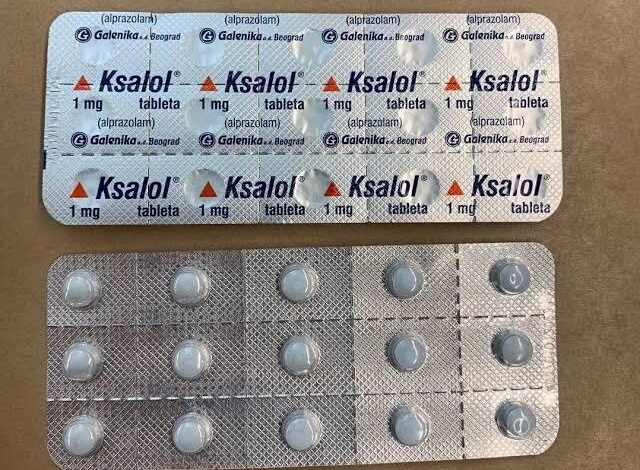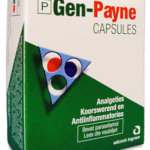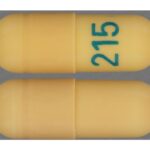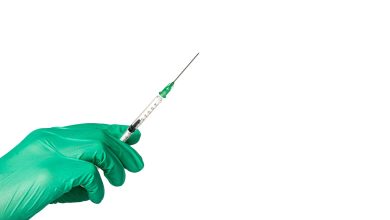Ksalol 1mg Tablets: Uses, Dosage, Side Effects, Warning

Ksalol is a brand of alprazolam (Xanax) common in Bosnia & Herzegowina as well as Serbia, It is sold by the generic drug maker Galenika. Ksalol is a powerful Benzodiazepine that is often prescribed to treat generalized anxiety disorder (GAD), panic disorders, and insomnia. It is extremely addictive when used long-term, making alprazolam addiction and abuse a serious concern.
Alprazolam is the number one prescribed psychiatric medication in the United States. Seventy percent of teens with a Ksalol addiction get the drug from their family’s medicine cabinet.
How does Ksalol work?
Benzodiazepines like Ksalol containing the active ingredient alprazolam work by attaching to a receptor in your brain called the GABA-A (gamma-aminobutyric acid-A) receptor. When Ksalol binds to this receptor, it has a calming effect in the brain. For anxiety disorders, Ksalol is often prescribed because it can help relieve anxiety symptoms quickly. However, other anxiety medications and talk therapy are better long-term choices for treating anxiety because Ksalol has side effects, a risk of overdose, and the potential for dependence.
These other treatments may take a few weeks to take effect, though. So Ksalol and other benzodiazepines are sometimes used as a “bridge” until other treatments can have a chance to work.
For treating insomnia, behavioral therapy and other medications are also generally preferred over Ksalol.
How long does Ksalol last?
Most people notice that Ksalol will start to work within 1 to 2 hours. For healthy younger adults, half the dose of Ksalol has left the body somewhere between 6.3 to 26.9 hours. The average is around 11 hours.
It takes a little longer for Ksalol to leave the body of healthy elderly people. Half the dose of Ksalol has left the body in elderly people somewhere between 9 to 26.9 hours. The average is around 16 hours for this group.
However, people stop feeling the effects of Ksalol long before it leaves the body, which is why it is often taken more than once a day. It’s important to take it as prescribed. Taking too many doses can lead to dependence and accidental overdose.
What are the side effects of Ksalol?
Side effects often occur at the beginning of therapy and will usually disappear when a person stops taking the medication.
Some possible side effects of Ksalol include:
• drowsiness
• lightheadedness
• low energy
• depression
• headache
• confusion
• insomnia
• nervousness
• fainting
• dizziness
• restlessness
• impaired coordination
• irritability
• memory impairment
• anxiety
• abnormal involuntary movement
• decreased libido
• confusion
• muscle twitching and cramps
• increased libido
• a dry mouth or increased saliva
• constipation or diarrhea
• nausea and vomiting
• inflammation of the skin due to allergy
• rash
• tachycardia or heart palpitations
• chest pain
• hyperventilation
• nasal congestion
• hypotension
• blurred vision
• menstrual disorders
• tinnitus
• upper respiratory infection
• sweating
• weakness
• abnormal dreams
• fear
• rigidity
• tremor
• increased or decreased appetite
• weight gain or loss
• edema
• slurred speech
• incontinence
The above is not a complete list of side effects, and others may occur. Call a doctor for medical advice about side effects. You can also report any Ksalol side effects you experience to the FDA at 800-332-1088.
A person needs emergency medical help if they have any of these symptoms of an allergic reaction to Ksalol:
• hives
• difficulty breathing
• swelling of the face, lips, tongue, or throat
A person should call their doctor at once if they have a serious side effect such as:
• depressed mood, thoughts of suicide or hurting oneself, unusual risk taking behaviors, decreased inhibitions, or no fear of danger
• confusion, hyperactivity, agitation, hostility, or hallucinations
• feeling very faint
• urinating less than usual or not at all
• chest pain, a pounding heartbeat, or a fluttering feeling in the chest
• uncontrolled muscle movements, tremor, or seizures
• jaundice, or a yellowing of the skin or eyes
Dosage
A person should take Ksalol by mouth as a doctor directs. The dosage will be based on the following factors:
• why the person is taking it
• their age
• how their body responds to the treatment
A doctor may gradually increase the dosage of Ksalol until the drug works effectively for the person. People should closely follow their doctor’s instructions to reduce the risk of side effects.
Ksalol addiction
Tolerance to Ksalol develops quickly, requiring the user to take more of the drug to achieve the desired effects. Someone with a Ksalol addiction may take up to 20 or 30 pills per day. If the user decides to stop taking Ksalol, they may experience withdrawal effects such as anxiety, restlessness, insomnia, and tremors. The onset of withdrawal symptoms is a sign that a physical dependence has developed. The development of tolerance and withdrawal are indications of addiction.
Once a Ksalol addiction has taken hold, daily responsibilities such as school, work, or family are ignored as energy is redirected toward drug-seeking behavior.
Other behavioral signs of Ksalol addiction include:
- Continued use of Ksalol even though it is contributing to personal difficulties
- Inability to stop using Ksalol despite the desire to
- Loss of interest in activities once enjoyed
- Obsessing about obtaining and using Ksalol
- Loss of control over the amount of Ksalol being consumed
- Legal problems that are the result of using Ksalol
- Risk-taking behaviors, such as driving while under the influence of Ksalol
If a person has used this medication regularly for a long time or in high dosages, withdrawal symptoms can occur if they suddenly stop taking it.
To prevent this, a doctor may reduce the dosage of Ksalol gradually. If a user wishes to stop taking Ksalol after dependence on the drug has formed, it is not recommended to quit “cold turkey” or without medical supervision. The symptoms of Ksalol withdrawal are similar to those of alcohol or Barbiturate withdrawal, and the severity of the symptoms can vary. If convulsions occur, withdrawal from Ksalol can be deadly. You can also find useful information on: How to Spot Fake Ksalol 1mg





